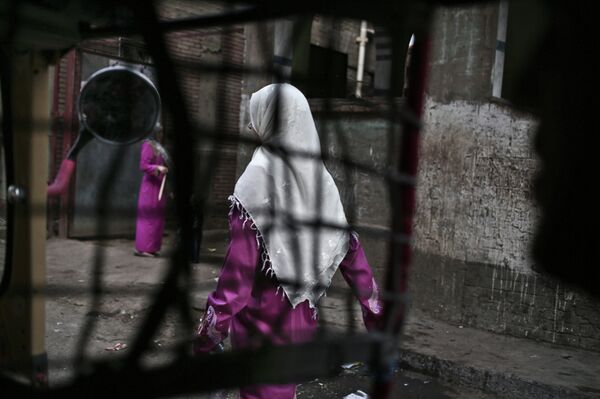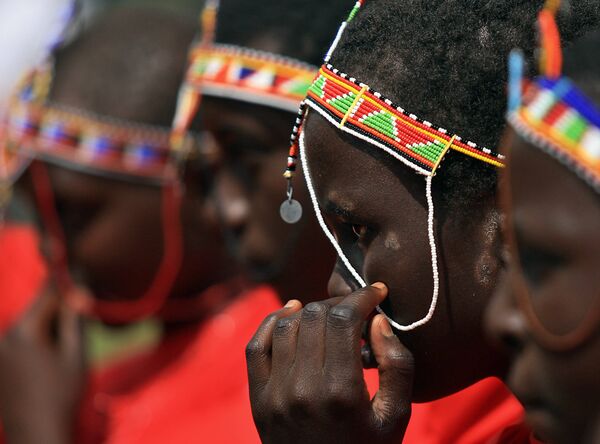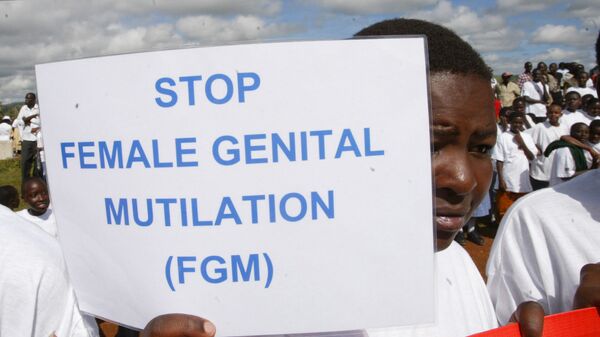In an interview with Sputnik, Egyptian experts explained why this practice still exists despite criminal prosecution, and what punishment Egyptian law provides for the parents and doctors of girls who perform these procedures.
Crime and Punishment
According to Egyptian legal advisor on Child Protection Law Dina al Muqaddam, such operations are still carried out in several villages in Upper Egypt.
"People do not see anything criminal in it because it's a practice that stretches back centuries. Often, local authorities are unwilling to explain to the residents why female circumcision is criminalised", she says.

Speaking of criminalising female genital mutilation, Muqaddam added that the law was aimed primarily at stopping those operations among doctors. The severe punishment – 5 to 7 years' imprisonment – has forced the vast majority of medical personnel to stop performing them.
"But some continue to do so in an improvised manner. And, of course, no one cares about the health of girls. That's why little Nada died."
Article 242 of the Egyptian Criminal Code defines the offence of FGM as "a total or partial removal of or injury to any external genitals without medical justification". Under the law, any individual performing such operations, regardless of their outcome, shall be subject to criminal prosecution.
FGM Prevalence
Samira Abdel Fadeel, a housewife from Faiyum, said that in their region mothers traditionally performed circumcision on their daughters under the age of 10.
"The operation was previously performed by a midwife who always delivered in the village. But over time, people started seeing doctors for cutting", she says.
According to Samira, some families have refrained from such manipulations even before. But there are still families that circumcise girls because it takes a long time for new information to reach remote villages, as well for it to settle down, she says.
In this regard, Egyptian MP Mona Mounir stated that the continued practice of female genital mutilation in the country demonstrates the ineffectiveness of government initiatives and social campaigns.
"If a doctor is proven to perform female genital mutilation, he must answer in law. Parents of girls who have undergone this terrible procedure, too, must be held responsible – if not with jail time, then at least by fines", the deputy concludes.
Local Authorities Can't Cope?
However, Vice President of the National Council for Women Maha Marwan believes that despite problems with the implementation of the plan in some regions, statistics from recent years clearly show the success of the national campaign against female mutilation.
"Our information campaign is trying to reach every house in Egypt, and we are working on it. It is important that our campaign has the support of President el-Sisi. And it is felt even in a coherent and systematic approach to work", she says.
Speaking about the possible failure of this policy, Marwan argues that there is no failure and there can be no failure, as they continue working according to plan. Parliament recently passed a law that increases prison sentences for the practice of female genital mutilation. At the same time, the Ministry of Health and Population is further punishing doctors who are involved in such operations.
"The work is going on in all the governorates of Egypt", she says.
According to the studies conducted by the UN and UNICEF in 2016, 87% of women in Egypt aged 15 to 49 years have undergone the FGM procedure.

With the introduction of legal provisions criminalising such manipulations and the launch of an information campaign to protect women's health, such operations have ceased in cities and urban districts. However, the problem is still acute in villages, especially in Upper Egypt.
Egypt was the third-largest country in the world in terms of the number of women who had undergone FGM, with only Ethiopia and Indonesia yielding much higher figures.
FGM, also known as female genital cutting, is a partial or complete cutting of the external female genitalia (the head of the clitoris, large and small labia) performed without medical reasons. The term "female circumcision" has not been used in the world medical and human rights communities since the 1980s. It is commonly referred to as "female genital mutilation".
The most frequent reasons for the operation are social norms, religious beliefs and misperceptions about hygiene. It is considered to be one of the ways to preserve virginity and a condition for marriage.



